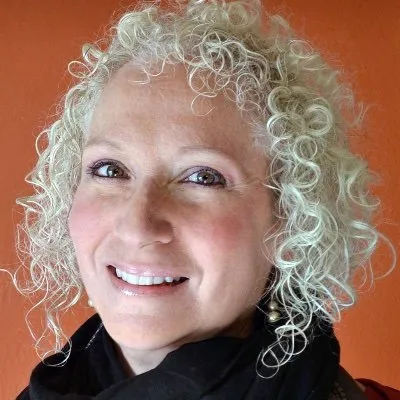My Loved One is Trans, What Will be My Part?

Finding out your loved one needs to transition and/or is questioning their gender can be filled with varying thoughts and feelings. For some companions* it may be a time to affirm their need to transition and celebrate them with pride and excitement. While for others, this awareness could be overwhelming and confusing. Sometimes, it might be a combination of both these reactions. Regardless of your level of acceptance, you can be contemplating a multitude of questions, concerns, fears, and unsure of many unknowns. Even the most supportive individuals could also request additional assistance when processing this information.
*Whenever it states companions, it refers to parents, family members, partners, and friends.”
Learning Your Loved One is Trans: Questions and Concerns
The thoughts that might be flowing through your mind may be abundant:
How will this impact my life, my loved one’s life, and our lives together as a unit? What does it mean to transition? Will my loved one, I, or any of our family members be rejected or harmed by others? Is my loved one the only person who feels this way? How can I help my loved one while they are figuring this all out for themselves? What will my role be throughout this process, if any? How will I be able to get my own needs met during their transition? If my loved one needs to transition, what will be the next steps? This inner dialogue captures some of the many thoughts that may be racing through your mind.
Though the journey and feelings of partners and families may be extremely aligned, there are aspects that can be quite different..
Partners of People in Transition
Partners may ask themselves:
Will I still be attracted to my partner if they transition? Will my partner be attracted to me if they transition? Will sex and intimacy change and if so, how and in what ways? Will I be able to remain in my relationship**? Will our relationship structure be the same or need to shift?
Some partners are eager to embrace their trans partner’s need to transition and are comfortable being part of the entire process. Others have expressed that they are not sure of how they feel and seek more information to help educate themselves as they figure out whether they can remain in their relationship and what they want to do as they consider their next steps. While other partners have shared that they will support their partner’s transition and be there for them as a caring friend but explain they can no longer remain in their relationship. And for some partners, they are clear that they will not be able to be part of their trans partner’s life in any capacity if they decide to transition. There are partners who end or take a break from their relationship when they first learn of their partner’s need to transition but they find they can connect and support their trans partner either as a friend or will even return to the relationship after a period of time. It is important to note that the partner in gender transition may also choose these same options for themselves throughout their own transition process regardless of what their partner wants to do.
**More than one person in a relationship may be exploring gender transition however, when there is a reference to the partner, it is in relation to the person who is either not in gender transition or to the partner whose gender transition is not the primary focus at this time. In addition, it must be recognized that relationship structures can be made up of a multitude of forms.
Parents & Family of People in Transition
Parents and family members of people that are in transition might wonder:
Will others blame and/or shame me for supporting my child’s transition? How do I know that I am making the correct decision in helping my child with their gender exploration? How will all of this affect their school life and education? Will my child ever date and have someone who loves them? Will my child be able to have biological children of their own if they transition? How will our extended family members react to my child’s need to transition?
For parents and family members of children under 18 years of age, their child’s need to transition often includes their involvement due to legalities and in assisting a minor with critical decisions that require permission granted by those legally responsible for the child’s welfare. It is vital that those who hold these rights educate themselves on how to best support their child and become knowledgeable about options and laws affecting their child’s social and/or medical transition. If your child is an adult, ask what you can do to assist them best and honor their requests. In both instances, having parents and family members as part of their support team can make a tremendous and positive difference throughout their gender journey.
In this video, we hear from companions of patients who have undergone facial feminization surgery (FFS). These individuals share about their acceptance and the affirming support they provided their loved one during this process.
10 Steps to Help Companions Navigate Their Loved One’s Gender Transition
As a result of interviewing and providing workshops to companions and those in transition, several overarching suggestions have consistently been given as feedback for those who are navigating their loved one’s transition.
These are practical ideas that may be helpful to you:
- Breathe and understand that the answers will come but it may take a bit of time.
- Gather information: search the internet for reliable sources, join support groups, attend conferences, read books, find out what is available in your local community, talk to others who have experienced what you are experiencing, and ask them for resources they can recommend.
- Seek mental health professionals and medical providers who are experienced and working with TGD people and their loved ones, as well as family and friends that can be there for you in any way that is comforting and helpful to you.
- Learn the vocabulary, as many of the words and terms may be very new to you and then ask your loved one which words and terms are applicable to them.
- Communicate with your loved one to find out what they are feeling and thinking, what they need from you, and where they are in their gender exploration.
- Once you know their feelings, thoughts, and needs, take the time to figure out your own feelings, thoughts, and needs.
- Realize you all have the right to change your mind and that you may shift your thinking daily– if this happens, talk about it with one another without judgment.
- Remember that gender and sexuality are two different things, but they can be interrelated.
- Recognize everyone’s path is different and on varying timetables, everybody’s needs must be respected, all involved have a right to their own feelings and thoughts, but it is never ok to be hurtful in any way.
- Be patient with yourself, process it all at your own pace, do what you feel comfortable doing, acknowledge when and if you need help or a break, and know you are not alone.
The best way to navigate your own journey while addressing all your questions, concerns, fears, and unknowns regarding your family member, partner, or friend’s gender transition is to learn all you can, explore the options, and consult professionals who are knowledgeable about the needs of those who identify as transgender and gender diverse, nonbinary, and/or are questioning their gender.
In addition to hearing from partners and parents of transgender people, it is essential to also hear from other family members who have supported a loved one through their transition. In this video, Jan shares her experience of supporting her sister through the process of transitioning. Jan discusses the challenges and rewards of being a supportive sibling and offers advice to others who may be in a similar situation.
Taking Care of Yourself Matters, Too!
Equally important, listen to your inner voice to figure out what feels right for you while supporting your loved one’s gender journey in whatever way you can do so. Remember to be honest with yourself, know your limitations, ask others to pitch in whenever you need it or feel you cannot be there for them. Accept what you will and will not be able to support and then have an open dialogue with your partner or family member to communicate next steps in your loved one’s gender transition.
Disclaimer
This blog is created to support the journey of parents, family members, partners, and friends of those who identify as TGD, non-binary, and/or are questioning their gender. We recognize the vital role that companions often play for those who are seeking any type of gender transition. Each post will address a different aspect and the various thoughts that may be part of the experience that impacts the lives of those who accompany their loved one throughout their gender transition. Its intent is never to negatively affect any person who is navigating their own gender transition, but rather to provide a platform where companions can feel heard and in turn, be present for their TGD, non-binary, and/or gender questioning loved one’s needs.




